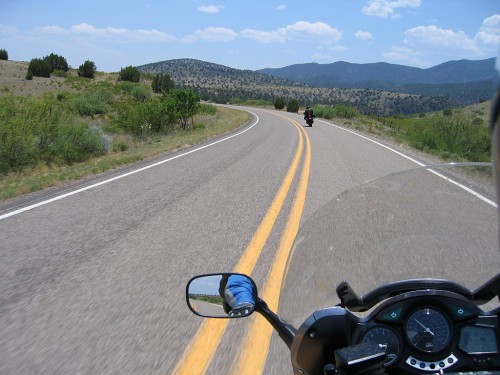Researchers at The University of Nottingham’s Centre for Motorcycle Ergonomics & Rider Human Factors have investigated the attitudes and skills of different types of riders according to their level of experience and training, using a motorcycle simulator. A unique approach was designed to find out whether or not riders with advanced training, ride differently to novice or experienced riders who don’t have an advanced qualification. The simulator uses a Triumph Daytona 675 motorcycle mounted on a custom rig designed and built at the University. It creates a realistic, interactive, research tool using ‘STI-SIM Drive’ simulation software which projects different riding scenarios onto a large screen in front of the rider.
Three groups of riders were put through identical scenarios on the simulator as well as other tasks in the laboratory to test aspects of their hazard perception and behaviour. The findings showed that experience on its own does not make riders safer on the road and in some cases the experienced riders behaved more like the novice riders. Advanced riders used better road positioning to anticipate and respond to hazards, kept to urban speed limits, and actually made better progress through bends than riders without the formal advanced training.
Dr. Alex Stedmon from the Human Factors Research Group, said: “This is one of the most in-depth studies of its kind ever conducted. It’s been a fantastic opportunity for us in the Faculty of Engineering to work alongside colleagues in the School of Psychology focusing on high impact research with a relevance to all motorcyclists. It has demonstrated clear differences between the rider groups and potential benefits to advanced training above and beyond rider experience and basic training. Whilst experience seems to help develop rider skills to an extent, advanced training appears to develop deeper levels of awareness, perception and responsibility. It also appears to make riders better urban riders and quicker, smoother and safer riders in rural settings.”


